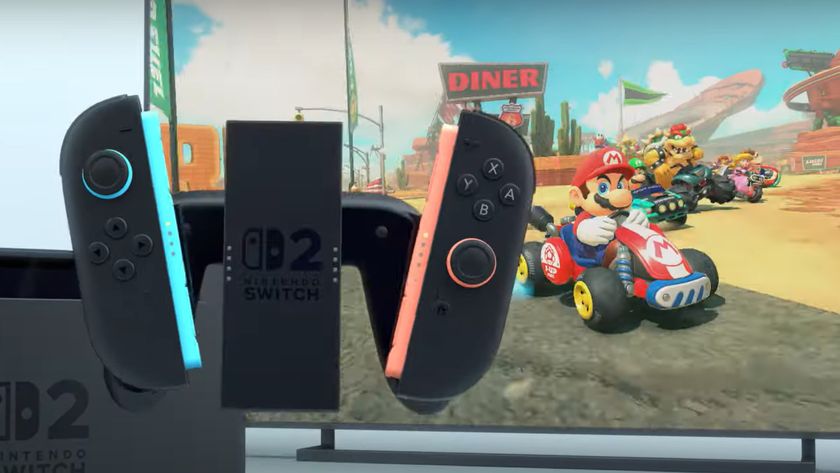I love everything about Code Vein except for its combat
I don't hate the combat, but I don't really like it either
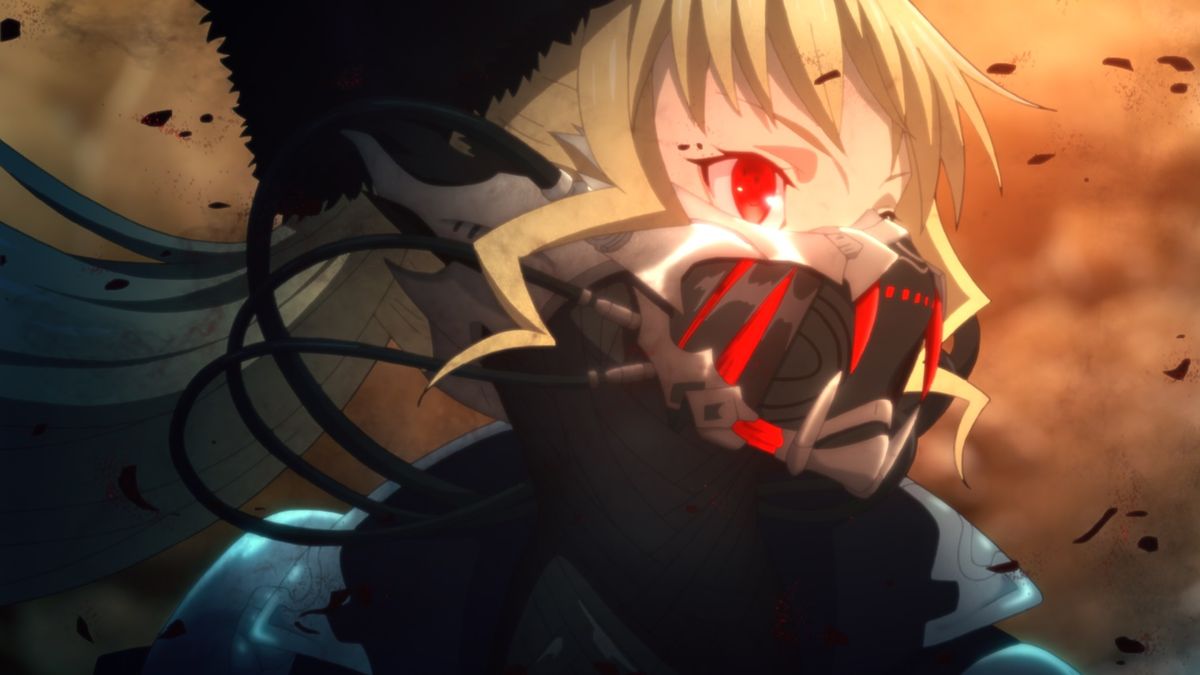
Bandai Namco has never been shy about Code Vein's influences. It's a third-person action-RPG sitting somewhere between Dark Souls and God Eater – two other action-RPGs in the publisher's stable – but with anime vampires and lots of dungeon crawling. I knew all that going into my E3 2019 demo of the game, but even so, I was flabbergasted by just how anime Code Vein really is. The impossible outfits, the familiar tropes, the downright extra hair – the character art is on point, and honestly I'm totally here for Anime Vampires: The Game. But I'm less here for the awkward combat, which doesn't quite measure up to either of the series it draws inspiration from.
I saw the opening hour of the game in my demo, and in true anime and JRPG fashion, Code Vein opens with amnesia. You're the chosen one, but you also don't remember who you are. I'm not really bothered by that though, because the character creator more than makes up for the protagonist's lack of character. Code Vein has one of the most irresponsibly detailed character creators I've ever seen, and I've played Black Desert Online. A good portion of the game's sizeable delay was probably spent adding leopard, zebra, and rainbow patterns to the billion accessory and clothing options available to you. If you like anime art, I guarantee you'll have a lot of fun just making your character. Looking back, that was probably the highlight of my demo, because the problems started almost immediately after I entered the first dungeon.
Dark Souls this ain't

Much of Code Vein's combat and the systems surrounding it will no doubt be familiar, especially if you've played any of the Dark Souls games or know of their reputation. Combat is based on rationing stamina with light attacks, heavy attacks, blocking, and rolling. You can backstab and parry enemies for critical damage. When you die, you lose all the EXP you have. Resting at 'Mistles' restocks your healing items and respawns enemies. You get the idea.
The biggest difference between Dark Souls and Code Vein is the speed of combat. And, well, everything here feels slow. Code Vein isn't as tight or fast as Dark Souls, nor does it have the spectacle or power fantasy of God Eater. Even light attacks with faster weapons take a second to get going, and coupled with the dopy enemies – who spend a lot of time idling and don't really react to your attacks – this makes fights feel like oddly staccato slugfests. There's no back and forth between you and whatever you're fighting. You just kind of take turns whaling on each other, and Code Vein's attacks just aren't flashy or complex enough for that alone to be fun.
Likewise, defending against enemy attacks can be fickle. Blocking isn't a viable option for light weapons because you'll take heavy damage regardless, and the invincibility frames on Code Vein's dodge roll feel inconsistent. Maybe I need more practice to get used to each weapon's dodge timing (your loadout affects your movement, as well as your abilities), but between the hitboxes and the i-frames, something's definitely not working as intended. Oh, and one more minor annoyance: The screen gets dark and sound gets muffled when your health is low. It's a dramatic effect, sure, but it also obscures the enemies that got you to low health in the first place, which is frustrating.
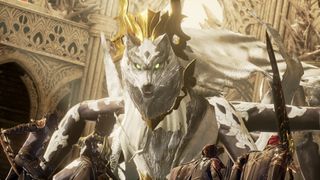
Another big letdown for me is weapon variety. Code Vein has one-handed swords, two-handed swords, hammers, spears, and bayonets. You can weave special attacks and magic into your combos, but fights mostly consist of light and heavy attacks with those five weapons. The thing is, they all have shared movesets, meaning a starting longsword, demon broadsword, and rare falchion will all feel exactly the same because they're all just one-handed swords. You can equip two weapons and swap between them, but I didn't encounter anything that presented enough of a challenge that switching weapons felt necessary. Spamming light attacks and unleashing charged heavy attacks during big openings felt like the way to go regardless of the weapon type I had equipped. This is partly a function of the lackluster AI, but it also speaks to the lack of personality among the weapons.
One thing Code Vein gets right is balancing Ichor, which is basically mana. Most abilities cost Ichor, and trust me, you're going to want to use them regularly, if only to spice up the battles. It's easy to run through your Ichor stock quickly, but luckily you can replenish it by performing drain attacks. You need to land a charged or critical attack to pull off a heavy drain, but you can also use a quick one to end a combo. This adds a much-needed wrinkle to combat, as budgeting Ichor becomes more important as you explore larger dungeons. Big drain attacks also deliver the vampire fantasy Code Vein is built on, which is cool.
Sign up to the 12DOVE Newsletter
Weekly digests, tales from the communities you love, and more
Build your own shonen protagonist
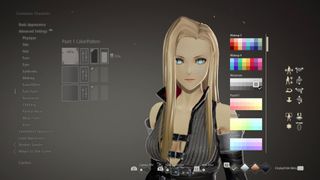
Code Vein's combat feels, at best, serviceable but sluggish. Luckily, it's backed by some interesting and involved customization which gives you more options in combat, even if those options aren't always exciting in action. I thought the character creator was complicated, but you need a freaking glossary for the actual loadouts. Your Blood Code is basically your class and determines your abilities, namely your Gifts. You can equip up to eight active Gifts and four passive ones, and each Blood Code has its own set of unique Gifts. Once you master one Blood Code's Gifts, you can use them on other Codes, so you're encouraged to try multiple classes.
By the end of my demo, I was using a buff and a special attack from the Fighter Code, a debuff and ranged attack from Ranger, and two spells from Caster while playing as a tanky Berserker. I also found several new Blood Veils – basically armor pieces – which boost different stats. You've got standard stats like strength (physical damage), dexterity (attack speed), vitality (health), and fortitude (stamina), but also mind and willpower which affect certain gifts and your drain attack speed. Oh, and did I mention that on top of playing with one other person in multiplayer, you can also have an NPC partner with you pretty much all the time? They have stats and Gifts of their own, so you'll want to build your loadout around theirs to some extent. The NPCs are also pretty powerful and smart, all things considered, so they're nice to have around.

I really enjoyed building my character in Code Vein, both shaping their appearance and tailoring their abilities. It's the combat that I couldn't get into, which is kind of like saying the bread is the best part of the sandwich – not exactly gushing praise. I'm hoping fights liven up as new enemies and skills are introduced, and maybe I'll have more fun once I get better adjusted to the speed of combat, but right now it feels like the combat is fighting me at every turn so I got tired of it pretty quickly. Code Vein is an incredibly fashionable game and I desperately want to like it, but I'm gonna need it to pick up the pace.

Austin has been a game journalist for 12 years, having freelanced for the likes of PC Gamer, Eurogamer, IGN, Sports Illustrated, and more while finishing his journalism degree. He's been with 12DOVE since 2019. They've yet to realize his position is a cover for his career-spanning Destiny column, and he's kept the ruse going with a lot of news and the occasional feature, all while playing as many roguelikes as possible.
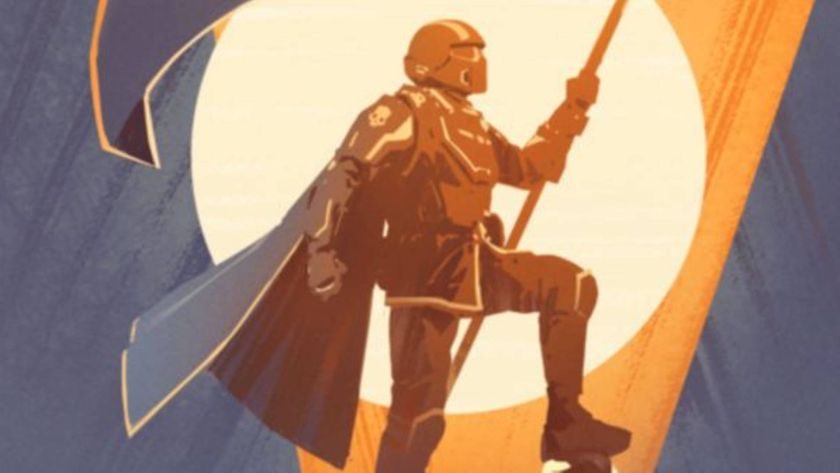
Helldivers 2 CEO says industry layoffs have seen "very little accountability" from executives who "let go of one third of the company because you made stupid decisions"
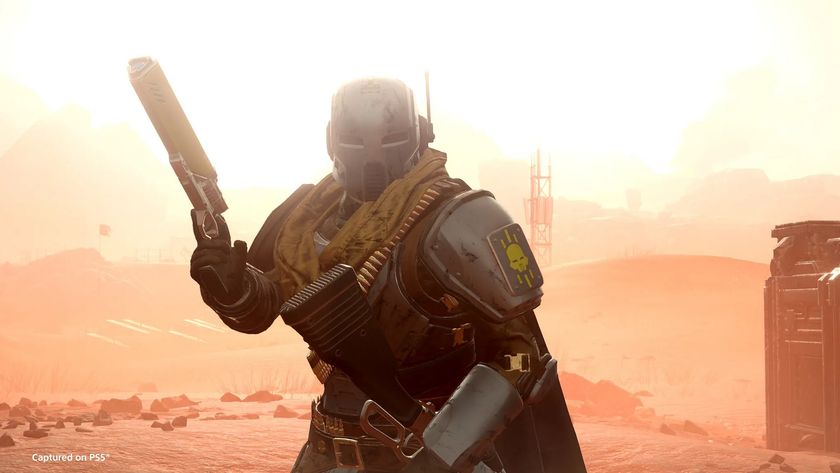
"Games that get 19% user score do not generally recover": Helldivers 2 CEO reflects on Arrowhead's "summer of pain" and No Man's Sky-inspired redemption arc
